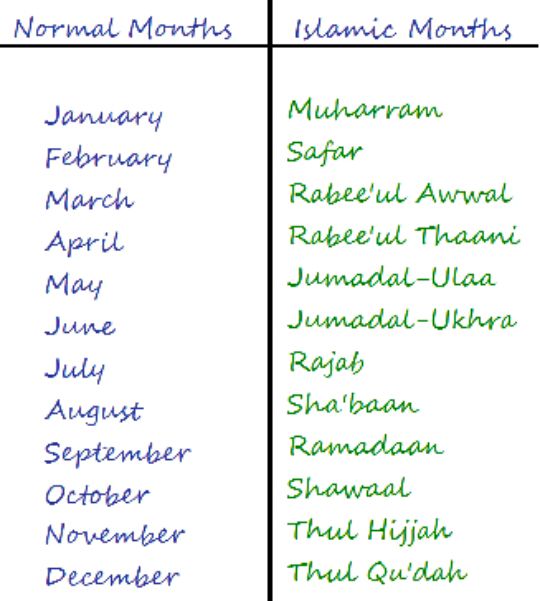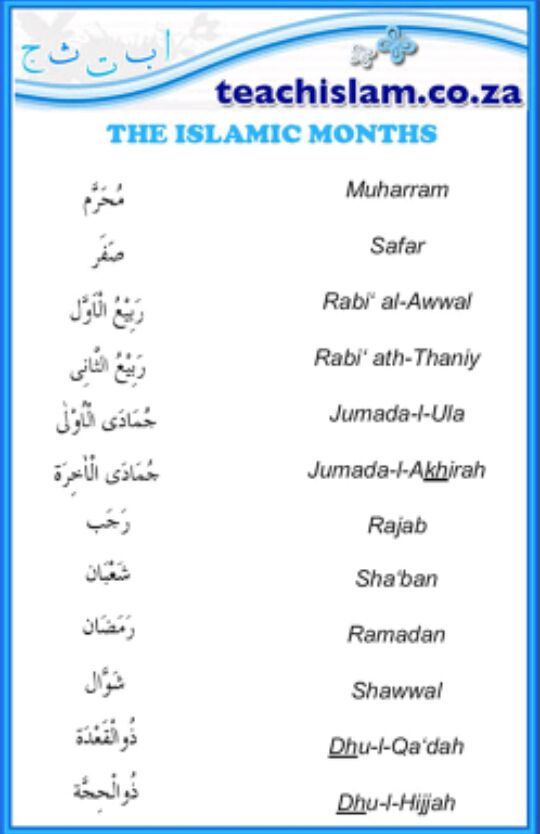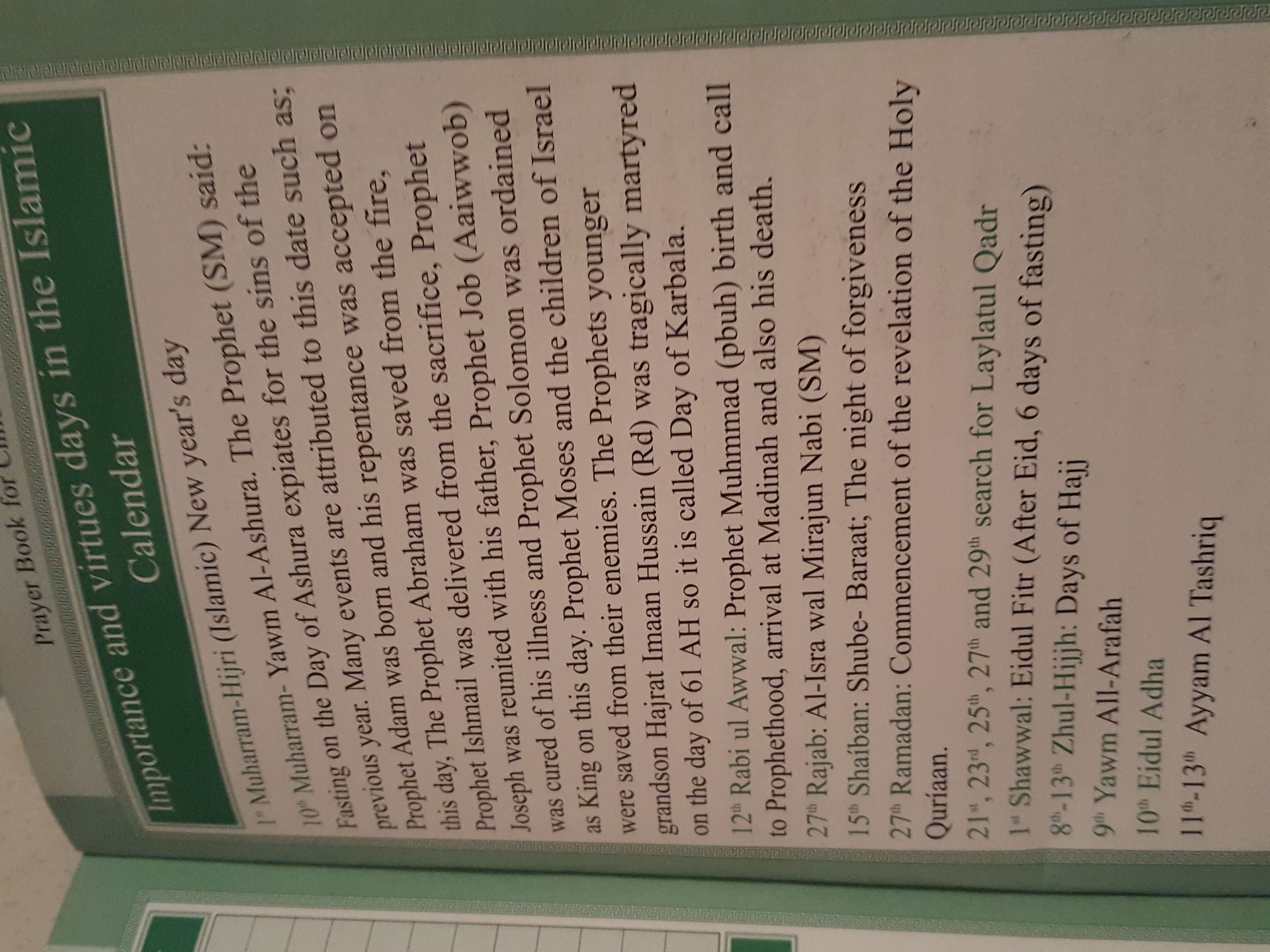Celebrations
Muslims all around the world celebrate 2 main holidays and 1 not as well know holiday.
The two main ones which are extremely popular and special are (in order):
Ramadan
Eid (Al Fitr and Al Adha)
Ramadan
Each year, Muslims spend the ninth month of the Islamic calendar observing a community-wide fast. The annual fast of Ramadan is considered one of the five "pillars" of Islam. Muslims who are physically able are required to fast each day of the entire month, from sunrise to sunset. The evenings are spent enjoying family and community meals, engaging in prayer and spiritual reflection, and reading from the Qur'an.
Ramadan is a period of fasting, reflection, devotion, generosity and sacrifice observed by Muslims around the world. While major holidays of other faiths have largely become commercialized events, Ramadan retains its intense spiritual meaning.
The word "Ramadan" comes from the Arabic root word for "parched thirst" and "sun-baked ground." It is expressive of the hunger and thirst felt by those who spend the month in fasting.
Ramadan is by nature a time of sacrifice;
-Through fasting, a Muslim experiences hunger and thirst, and sympathizes with those in the world who have little to eat every day.
-Through increased devotion, Muslims feel closer to their Creator and recognize that everything we have in this life is a blessing from Him.
-Through increased charity, Muslims develop feelings of generosity and good will toward others. The Prophet Muhammad (peace be upon him) once said, "A man's wealth is never diminished by charity."
-Through self-control, a Muslim practices good manners, good speech, and good habits.
Through changing routines, Muslims have a chance to establish more healthy lifestyle habits -- particularly with regards to diet and smoking.
-Through family and community gatherings, Muslims strengthen the bonds of brotherhood and sisterhood, in their own communities and throughout the world.
Ramadan is a very special time for Muslims, but the feelings and lessons we experience should stay with us throughout the year. In the Qur'an, Muslims are commanded to fast so that they may "learn self-restraint" (Qur'an 2:183). This restraint and devotion is especially felt during Ramadan, but we all must strive to make the feelings and attitudes stay with us during our "normal" lives.
Eid al-Fitr
"Feast of breaking the fast" is an important religious holiday celebrated by Muslims worldwide that marks the end of Ramadan, the Islamic holy month of fasting (sawm). The religious Eid (Muslim religious festival) is the first and only day in the month of Shawwal during which Muslims are not permitted to fast. The holiday celebrates the conclusion of the 29 or 30 days of dawn-to-sunset fasting during the entire month of Ramadan. The day of Eid, therefore, falls on the first day of the month of Shawwal. The date for the start of any lunar Hijri month varies based on the observation of new moon by local religious authorities, so the exact day of celebration varies by locality. We celebrate it by having a big meal with our families, relatives and cousins.
Eid al-Adha
'Feast of the Sacrifice', also called the "Sacrifice Feast", is the second of two Muslim holidays celebrated worldwide each year, and considered the holier of the two. It honors the willingness of Ibrahim (Abraham) to sacrifice his son, as an act of obedience to God's command. Before Abraham sacrificed his son, God provided a male goat to sacrifice instead. In commemoration of this, an animal is sacrificed and divided into three parts: one third of the share is given to the poor and needy; another third is given to relatives, friends and neighbors; and the remaining third is retained by the family. When we celebrate eid we must try to follow this ritual by sacrificing a cow and dividing it like above. We believe that one cow is a sacrifice for 7 people- so if your family had 14 members, you would have to sacrifice 2 cows. We only follow this as Ibrahim did it- it is a sign of respect and it is a command given by Allah (SWT).
The months in Islam are very important for our celebrations. like English has January - December, we also have Muharram - Thul Qu'dah.


Here are some important celebrations:

These are the only celebrations that are participated in by all Muslims although some Muslims also participate in Moulids (like a Saints Day celebration) or other celebrations but these are not practiced by all and have differing opinions as to whether they are permissible to participate in. I hope that answers your question but as I said exact practices do vary from country to country/culture to culture so there can be a great deal of difference in exact practices and traditions. I tried to keep it to more common elements practiced by most.
Bạn đang đọc truyện trên: Truyen247.Pro